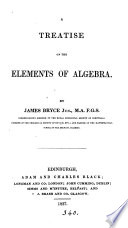 | James Bryce - Algebra - 1837 - 322 pages
...Logarithms constructed to the base 10 are called, for the sake of distinction, common logarithms. Hence, the common logarithm of a number is the index of the power of 10 which is equal to that number. The only other base to which logarithms have ever been constructed,... | |
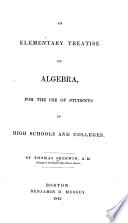 | Thomas Sherwin - Algebra - 1842 - 326 pages
...constructed upon the number 10 as a base. Hence, The common logarithm of a number, is the exponent of the power to which 10 must be raised, in order to produce that number. Thus, 3 is the logarithm of 1000, because 103 = 1000; and 0.5 is the logarithm... | |
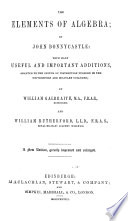 | John Bonnycastle - 1848 - 334 pages
...1 ; then e 1. S + 1.2.8 and if x = 1, we get __ + _ + _ + = 2-718281828459. THEORY OF LOGARITHMS. A logarithm of a number is the index of the power to which a given quantity must be raised that the power may be equal to the number. Thus, if the power a" be... | |
 | James Thomson - 1848 - 326 pages
...Hence, as x may be any positive number, and y its logarithm, we arrive at the conclusion, that the logarithm of a number is the index of the power to which the base of the system must be raised to produce that number. Thus, in the common logarithms, m which... | |
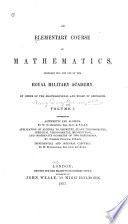 | Royal Military Academy, Woolwich - Mathematics - 1853 - 476 pages
...on. But the best method of considering logarithms is derived from the following definition : — A logarithm of a number is the index of the power to which a given quantity must be raised so as to be equal to that number. Tims in the equation a* = n, x is... | |
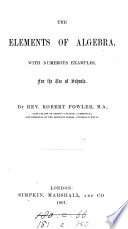 | Robert Fowler - 1861 - 426 pages
...unity Ъе taken as a base, every number from 0 to зэ may be regarded as a power of that base. The " Logarithm" of a number is the index of the power to which the base must be raised to produce that number. If 4 be the base, then 42 = 16) And these equalities... | |
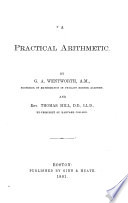 | George Albert Wentworth, Thomas Hill - Arithmetic - 1881 - 446 pages
...one-tenth of a meter ; it is equivalent to 1.05671 liquid quarts. Logarithm of a number. The exponent of the power to which 10 must be raised in order to obtain the number. Long division. The method of dividing in which the processes are written in full.... | |
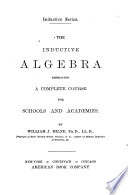 | William James Milne - Algebra - 1881 - 360 pages
...64? What 256? 4. What power of 10 equals 10? What power of 10 equals 1? What 100? What 1000? 352. The Logarithm of a number is the index of the power to which a constant number must be raised to produce the given number. Thus, when 4 is the constant number,... | |
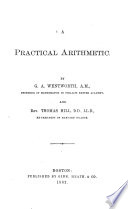 | George Albert Wentworth, Thomas Hill - Arithmetic - 1882 - 376 pages
...one-tenth of a meter; it ia equivalent to 1.05671 liquid quarts. Logarithm of a number. The exponent of the power to which 10 must be raised in order to obtain the number. Long division. The method of dividing in which the processes are written in full.... | |
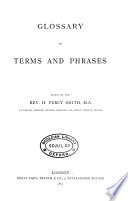 | Henry Percy Smith - English language - 1883 - 542 pages
...of the ratios] ; Base of L. ; Brigg's L. ; Common L. ; Hyperbolic L. ; Naperian L. ; Table of L. The logarithm of a number is the index of the power to which a given number (or bast} must be raised to equal that number. Thus, to the base io, the L. of looo... | |
| |